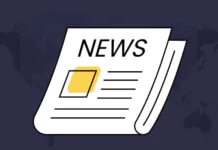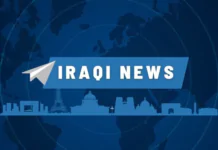Good Afternoon ,
THE LESSONS LEARNED AT “OPERATION CHOKEPOINT 2.0” CONGRESSIONAL HEARINGS
The new majority party cast the former administration’s bank regulators as bullies operating in the shadows, yet surprising agreements were found.
The deep political divisions in the United States were apparent once again during the recent Congressional hearings on Operation Chokepoint 2.0, the alleged top-down initiative by former US President Joe Biden’s administration to “de-bank” crypto firms.
For much of Thursday afternoon (Feb. 6), it seemed that members of the Republican and Democratic parties were inhabiting different universes.
Had Biden administration regulators really pressured US financial institutions to deny bank accounts to cryptocurrency firms in 2023, as Republicans asserted? Or was this whole construct of Chokepoint 2.0 “a fake program,” one never initiated by the Biden administration, as Democratic Representative Al Green stated?
Interestingly, at the end of the two-hour hearing, titled “Operation Choke Point 2.0: The Biden administration’s Efforts to Put Crypto in the Crosshairs,” the two political parties actually seemed to be in agreement on steps to be taken to prevent future regulatory ‘overreach’ — even while arguing about past practices.
For the most part, though, the Republicans cast the former Biden administration’s bank regulators as bullies operating in the shadows.
Bitter back-and-forth at Operation Chokepoint hearing
Paul Grewal, chief legal officer at Coinbase, testified that the US Federal Deposit Insurance Corporation (FDIC) “bludgeoned the banks” with an onslaught of examinations and questions “until the banks relented under the pressure.” Regulators forced banks to deny stablecoin issuers bank accounts for their reserves, for instance.
There was some drama, too, when Republican Rep. Ann Wagner questioned Fred Thiel, CEO of MARA Holdings, a leading Bitcoin mining firm, about events in 2023 when several large US banks failed:
“Mr. Thiel, has your bank ever stated whether their prudential regulators told them that they should refrain from providing services to digital asset firms?”
“We banked with Signature Bank and when the FDIC shut them down [in March 2023] and Flagstar took over the accounts, none of the crypto accounts were allowed to be part of those assets acquired,” answered Thiel, continuing:
“We were forced to immediately seek accounts with other banks. We were able to open an account with another bank, deposited $70 million after going through the approval processes, and six days later, we were told we have to shut down the accounts because our bank no longer will bank crypto companies.”
Wagner: “So the answer is yes.”
Elsewhere, Meuser asserted that the former administration’s regulators “resorted to vague interpretive regulatory letters, threatening banks with negative examination scores and fines if they continue their partnership with digital asset companies.”
Not surprisingly, the minority party resisted these characterizations. Ranking minority party member Green asked if anyone “had read a document from someone in the Biden administration or some regulator saying that there was a Chokepoint 2.0 operation.”
No one raised their hand.
“So this is a made-up statement. Somebody concluded that this was something that sells.”
Democratic Representative Nikema Williams said the matter under discussion, Choke Point 2.0, isn’t a serious issue — unlike, say, the continuing racial wealth gap or “Elon Musk dismantling our federal government.”
Williams questioned why the subcommittee was even meeting to discuss the crypto policy of former president Biden when “he isn’t in power anymore.”
Meuser asked another witness, Austin Campbell, adjunct professor at NYU’s Stern School of Business, for some details on just how “Operation Chokepoint operated in the past” (e.g., Chokepoint 1.0, invented by the Obama administration, supposedly), given he was a former bank risk manager. How exactly did regulators pressure banks into severing ties with legally operating businesses?
Campbell answered that when communicating with regulators, “you are getting fundamentally several layers of guidance,” both written and verbal.
On the verbal level, regulators might say: “Well, we have reputational concerns about you banking crypto clients…. We’re still not sure. Maybe we’ll answer you on that. Maybe we won’t, but we still find it risky.”
“You understand that to mean no,” explained Campbell.
“Rhetorical red meat” or genuine overreach?
Cointelegraph queried several outside sources in the wake of the hearings, including Dru Stevenson, professor of law at South Texas College of Law Houston. Was debanking the crypto industry a serious problem in the US, or is it just something dreamed up by the crypto industry?
“The invocation of ‘Chokepoint’ is pure political theater, rhetorical red meat for the GOP base,” Stevenson answered.
The reality is that all rules and regulations, even the most wholesome and helpful, involve some tradeoffs, such as compliance checks and a little bit of overdeterrence at the margins, which may have happened in the last administration, he said.
Stephen Gannon, a partner at law firm Davis Wright Tremaine, disagreed. The “evidence is now overwhelming” that regulators overreached in the previous administration.
He cited numerous factors, including Senate Banking Committee testimony this past week from Nathan McCauley regarding a Federal Reserve Bank (FRB) internal document brought forward at the hearing by Sen. Lummis. Also, the FDIC “pause” documents recently released and statements from Acting FDIC Chair Travis Hill acknowledging such pressures existed.
In addition, there was the aforesaid testimony before the House Financial Services subcommittee, “particularly that of Fred Thiel,” as well as “my own personal experience with crypto clients who have been de-banked,” continued Gannon. Add to that “information compiled by Marc Andreessen and Nic Carter.”
Steven Kelly, associate director of research at the Yale Program on Financial Stability at the Yale School of Management, highlighted problems associated with reputational risk, a particular concern expressed during the subcommittee hearing. Kelly told Cointelegraph:
“Supervisors’ ability to press banks on their ‘reputation risk’ is a black box authority that can give way to something like an Operation Chokepoint.”
Still, Kelly was doubtful there was any premeditated, secret plan to de-bank the crypto industry. The fact that “the accusation has only been focused on the crypto industry thus far is telling and less suggestive of a chokepoint operation.
There are clearly real prudential concerns with crypto, which were borne out in the collapses of the 2022 crypto winter and the subsequent runs on Silvergate Bank and Signature Bank.”
Both parties find points of agreement
One surprise regarding the hearings: there were actually some points of agreement among the majority and minority members and their witnesses. Campbell, the former bank risk manager, whose testimony was generally well received by the majority party, highlighted some reforms the subcommittee might consider moving forward, and these seemed to meet broad approval:
“A simple one is that all banking guidance should be written. Do not allow verbal guidance. Do not allow hearsay and subjective statements. Write it down.”
“Secondly, that guidance should be made public on some trailing basis. Once you have a paper trail of what the regulators are doing, we will be having many less of these hearings.”
“When banks refuse people services, they should have to tell them why. And those statements should be written complete and transparent.”
“They should abolish management and reputational risk as components of the rating of banks. Those are subjective, rife for abuse, and can be used for really any ends that a banking regulator would like to wedge into an otherwise relatively objective framework.”
It wouldn’t hurt either if bank agency decisions were subject to outside oversight. Added Campbell:
“I’m a professor. I wouldn’t let any of my students grade their own homework. You should not be letting the banking regulators grade their own work here either.”
Shayna Oleszek, director of banking policy at Better Markets, and a witness called by the minority party, agreed with many of Campbell’s recommendations.
Green, too, seemed to be seeking consensus in his closing remarks.
“Wouldn’t everyone agree that we need better crypto guardrails? If you agree, raise your hands.” All the witnesses raised their hands.
@ Newshounds News™
Source: CoinTelegraph
~~~~~~~~~
BRICS: IRAN CALLS FOR A ‘UNIFIED CURRENCY’ TO CHALLENGE THE US DOLLAR
The new BRICS member Iran is calling for a ‘unified currency’ to challenge the US dollar’s global reserve currency status.
The Islamic Republic is pulling several options to dim the prospects of the US dollar’s hegemony. Iran is reeling under sanctions from the US and is desperate to find a viable option to lift its economy. The desperation comes after several countries ended conducting business with Iran that stalled its economy leading to a lackluster GDP.
After China and Russia, Iran is now spearheading the de-dollarization agenda as a way to take on the US dollar. The move could make the US dollar lose out in the supply and demand mechanism in the currency markets. It could lead to hyperinflation if the US fails to make other countries use the dollar for trade.
BRICS: Iran Wants a ‘Unified Currency’ To Pull the US Dollar Down
BRICS member Iran revealed that they are open to the formation of a new ‘unified currency’ as an alternative payment option to the US dollar. The Islamic Republic revealed that if BRICS come to a consensus about the formation, they will wholeheartedly support the initiative.
“If BRICS member countries come to a consensus to use a single and unified currency, we are all for it. We will proceed from national interests,” said the Iranian government’s spokesperson Fatemeh Mohajerani.
However, BRICS might not launch a ‘unified currency’ as Trump would impose 100% tariffs if they ditch the US dollar.
In addition, not every BRICS member has cordial relations with Iran except for China and Russia. This puts the ‘unified currency’ initiative under question as it does not fit their national agendas. The idea could most likely be stalled in the upcoming summit as other countries might not come to a consensus.
@ Newshounds News™
Source: Watcher Guru
~~~~~~~~~
Seeds of Wisdom Team RV Currency Facts Youtube and Rumble
Newshound’s Podcast Link
Newshound’s News Telegram Room Link
Q & A Classroom Link
Follow the Roadmap
Follow the Timeline
Seeds of Wisdom Team™ Website
Subscribe to Seeds of Wisdom Team™ Newsletter






